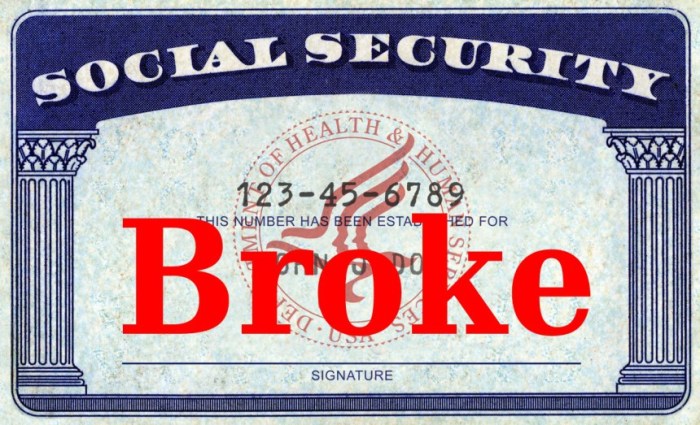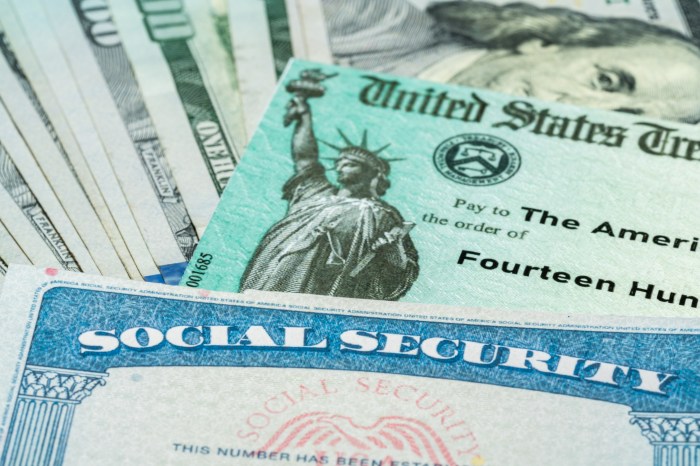In the digital age, our Social Security Numbers (SSNs) have become a treasure trove for cybercriminals. Social security leak incidents are on the rise, putting our financial and personal information at risk. This article delves into the causes, consequences, and preventive measures surrounding SSN leaks, arming you with knowledge to safeguard your identity.
SSN leaks occur when unauthorized individuals gain access to these highly sensitive numbers, exposing individuals to a range of potential threats.
Social Security Number (SSN) Leaks
Social Security Number (SSN) leaks occur when unauthorized individuals gain access to and disclose sensitive personal information, including SSNs, putting individuals at risk of identity theft and financial fraud.
The consequences of SSN leaks can be severe, including financial loss, legal issues, and damage to reputation.
Causes of SSN Leaks

SSN leaks can occur due to various factors, including:
- Data breaches: Cybercriminals can hack into databases or systems to steal personal information, including SSNs.
- Human error: Unintentional mistakes by employees or individuals can lead to SSN exposure.
- Physical theft: SSNs can be stolen from wallets, purses, or other physical documents.
Methods of SSN Leak Prevention

Preventing SSN leaks is crucial to protect personal information.
| Method | Description |
|---|---|
| Strong passwords | Use complex and unique passwords for online accounts. |
| Two-factor authentication | Enable additional security measures to verify identity during logins. |
| Shred sensitive documents | Properly dispose of documents containing SSNs. |
- Be cautious about sharing SSN information.
- Monitor credit reports and financial statements regularly.
Consequences of SSN Leaks, Social security leak
SSN leaks can have significant consequences, including:
- Financial loss: Stolen SSNs can be used to open fraudulent accounts, make unauthorized purchases, or file fraudulent tax returns.
- Legal implications: Individuals whose SSNs are compromised may face legal issues related to identity theft.
- Damage to reputation: SSN leaks can damage personal and professional reputations.
Identity Theft and SSN Leaks

SSN leaks are closely linked to identity theft, as they provide criminals with a key piece of information to impersonate individuals.
With stolen SSNs, criminals can:
- Open new credit accounts in the victim’s name.
- Obtain medical services and prescriptions.
- File fraudulent tax returns.
According to the Federal Trade Commission, identity theft affects millions of Americans annually, with SSN leaks being a major contributing factor.
Reporting and Responding to SSN Leaks
If an SSN leak is suspected, individuals should:
- Contact the Social Security Administration (SSA) immediately.
- Freeze credit reports with the three major credit bureaus.
- File a police report.
| Responsibility | Action |
|---|---|
| Individuals | Monitor credit reports, report leaks promptly, and take preventive measures. |
| Organizations | Implement strong data security measures, train employees on SSN handling, and respond swiftly to leaks. |
Conclusion: Social Security Leak
Protecting our SSNs is paramount in the face of evolving cyber threats. By understanding the risks, implementing preventive measures, and responding promptly to leaks, we can safeguard our identities and mitigate the potential damage caused by SSN leaks.
FAQ Summary
What are the common causes of SSN leaks?
SSN leaks can occur due to data breaches, human error, phishing scams, and even physical theft of documents containing SSNs.
What are the financial consequences of SSN leaks?
SSN leaks can lead to fraudulent financial transactions, unauthorized access to bank accounts, and even tax refund theft.
What are the legal implications of SSN leaks?
Organizations that fail to protect SSNs may face legal consequences, including fines and reputational damage.